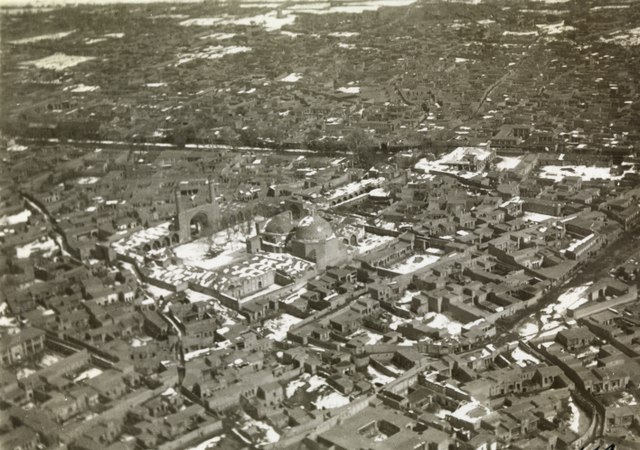Top Qs
Timeline
Chat
Perspective
Sepah Street
Street in Qazvin, Iran From Wikipedia, the free encyclopedia
Remove ads
The Sepah Street (Persian: خیابان سپه), also known as the Shohada Street (Persian: خیابان شهدا) is a street in Qazvin, Iran. It is the oldest planned street in Iran, built when Qazvin was the capital of Iran's Safavid empire.[1][2][3][4][5]
The street leads to the Safavid royal complex in Qazvin, and passes next to the Jameh Mosque of Qazvin and Imamzadeh Hossein.
Remove ads
Name
During the Qajar era, the street was known as "Dowlati". The name Sepah was given to the street during the rule of Reza Shah Pahlavi. In the Persian language "Sepah" means "army". After the Iranian revolution in 1979, the street was renamed to Shohada street, Shohada meaning "Martyrs", to commemorate the Iranian soldiers killed during the Iran–Iraq War, and to remove the association the previous name had to the Pahlavi dynasty.[3]
Remove ads
History

In 1546, Shah Tahmasp I moved the Safavid capital from Tabriz, which was vulnerable to Ottoman attacks, to Qazvin, a more secure location. During this time, many palaces and gardens were created, as well as the building of Imamzadeh Hossein, and the street was created to connect these places. It is the oldest planned street in Iran.[6]
Remove ads
Gallery
- Tile on the gate to the Safavid royal complex, reading "Sepah Street"
- Sepah street
- Entrance to the Jameh mosque of Qazvin as seen from the Sepah street
References
Wikiwand - on
Seamless Wikipedia browsing. On steroids.
Remove ads





